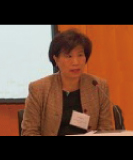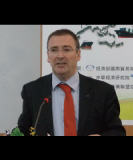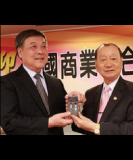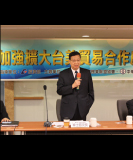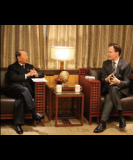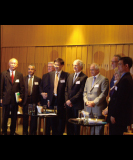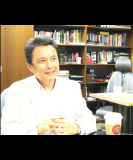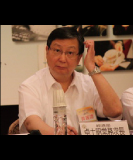You are browsing > Service in Taiwan > Development
WTO to hold seminar on cross-border movement of service-providing individualsWTO
At a meeting of the Council for Trade in Services (CTS) on 30 May, WTO members agreed to hold a thematic seminar on the temporary movement of natural persons across borders for the purpose of supplying services. Also known as “Mode 4”, this trade modality covers individuals who are either service suppliers (such as independent professionals) or are employed by a service supplier.
Under the General Agreement on Trade in Services (GATS), services can be traded internationally in four different ways — known as the four modes. Mode 4 does not concern persons seeking access to the employment market in the host member, nor does it affect measures regarding citizenship, residence or employment on a permanent basis.
Initially proposed by India, the seminar will be held back-to-back with a meeting of the Council for Trade in Services on a date still to be confirmed. The event will be based on a draft programme by the WTO Secretariat and will be opened to representatives of WTO members, international organizations, public and private entities and individual experts.
Under the title "CTS Thematic Seminar – Mode 4 at work", the proposed programme will provide an overview of Mode 4 of the GATS and discuss its scope, offering also a snapshot of the specific commitments undertaken and most favoured nation exemptions listed by WTO members. Mode 4 access and pertinent regulatory disciplines negotiated in Regional Trade Agreements, the main challenges of measuring Mode 4 trade and its economic impact will also feature in the discussion.
Participants will have the opportunity to discuss regulatory measures that may have a bearing on scheduled Mode 4 commitments and will address the challenges to realising the benefits of existing Mode 4 bindings.
On other issues, least developed countries (LDCs) stressed the need for capacity building and technical assistance measures to enable their suppliers to take advantage of the LDC services waiver preferences. They also advocated that, in line with the decision on the waiver taken at the WTO's 10th Ministerial Conference in Nairobi, the Council facilitate an exchange of information on relevant technical assistance measures, initiate a process to review the operation of notified preferences, and put forward a number of specific suggestions.
China reported on a two-week workshop on "E-commerce and development under the multilateral trading system" that was held in China in May and attended by 15 WTO developing members. Members reverted to a proposal that the Council hold a thematic seminar on e-commerce; delegations were generally supportive of the idea and consultations on a possible programme for the event will be organised.
The Russian Federation and Ukraine reiterated their differences regarding the reform of the Ukrainian gas transportation system and, under other business, Japan, echoed by the United States, repeated its concerns about existing and proposed cybersecurity measures by China and Viet Nam; the delegations concerned underscored that their respective measures are fully in compliance with their WTO obligations.
The Council appointed Ambassador Alfredo Suescum of Panama as the new chair of the Council.

